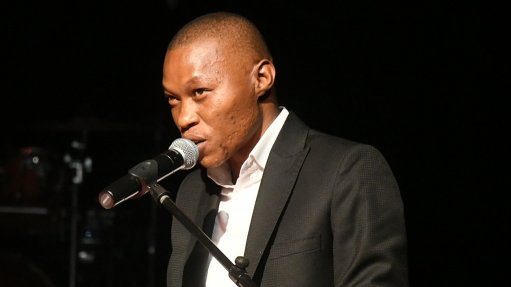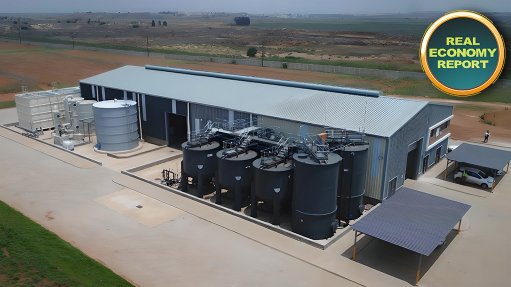Global climate discussions afford Africa a chance to exert agency over development
The twenty-seventh Conference of the Parties (COP27), currently under way in Egypt, holds opportunities for Africa to use the confluence of crises, and its role as host of the COP27, to try to pursue a more ambitious agenda and exercise agency to overcome some of the growth impediments caused by global headwinds and the asymmetries of the international system, University of Cape Town Nelson Mandela School of Public Governance's Professor Carlos Lopes said this week.
The COP27 discussions are aimed at addressing a major structural fault in the global economy and to ensure that growth and development are sustainable.
"The world is trying to see how we can use innovation and research and development to produce a system that is not based on wealth accumulation, but on sustainability.
“Further, the discussions are around much more than just the environment, because we are also dealing with a number of consequences in the way that we conceive of development," Lopes highlighted.
Environmental considerations are a late comer to the three pillars of development, alongside the economic and social pillars focused on in the past, he added.
"We are now obliged to think about the real consequences of this structural change," he said.
International initiative the Global Commission on the Economy and Climate has called for an accelerated low-carbon transition by integrating climate action and risk into strategic economic decision-making, which is not the way ratings agencies and markets in general act now, he noted.
"For example, investments in renewable energy require extra efforts because there is a need to derisk the investment package. However, if we take sustainability into account, then it is not a question of derisking the investment, but derisking the impact of the investment on the environment and planet, and avoiding the emissions associated with production systems," he said.
Facilitating this change in the pillars of development requires that confidence be created in the global investment community that the climate action the world is entering into is strong and lasting and represents an equitable deal between the regions of the world, Lopes stated.
"Africa has suffered more than most from climate change and development asymmetries and can claim some sort of carbon credits because development and growth excluded Africa and used its natural capital. Other nations therefore have a carbon debt and, when this is inserted into the discussions, the meeting at Sharm-el Shaik is about historical contributions and redress."
Other discussions at COP27 include the phasing out of subsidised fossil fuels, he added.
"This illustrates clearly that conversion capabilities are no longer dependent on innovation and knowledge, but on changing the series of mechanisms we are accustomed to, which require a complete overhaul and will be costly," he warned.
Further, if the world is to phase out fossil fuels, it must be transparent and predictable, in contrast to the current trajectory of accelerating fossil fuel use over the past three years.
"If we look at what kind of investments are being made available to Africa, it is easier to invest in gas and fossil fuels in the region, and countries therefore find themselves in the situation that they have to be pragmatic," noted Lopes.
"If the only capital available is still for fossil fuels, despite the talks, and it is difficult to find climate finance, then this will be a problem. This is why the Global Commission on the Economy and Climate highlights the importance of phasing out subsidies for fossil fuels in the early stages of the global transition, especially given the profits oil companies make while being afforded subsidies," he added.
Another important element of enabling clean energy development in Africa is to reduce the costs of low-carbon technologies. In Africa, low-carbon energy technologies are the easy and obvious choice to improve energy availability and security.
"There are some advantages of being a late-comer, and Africa can leap directly to what is available in terms of technology. Africa can benefit from some of the international developments and can count on further technological development in these areas to accelerate considerably, with constant progress on many different fronts," he said.
Given Africa's infrastructure deficit and the sizeable amount of gross domestic product that is dependent on the investments, it is important to make these investments in the right infrastructure, he added.
To enable the sustainable development of Africa requires that the use of low-carbon technologies be scaled up and barriers to entrepreneurship in this space be removed.
"A particular possibility in Africa for the use of low-carbon technologies and energy is to support agroprocessing, which requires the right policies and incentives, but presents immense opportunities," Lopes added.
Meanwhile, green growth depends on making risky investments in unfamiliar sectors. Every country is entering a new world and needs to adopt unfamiliar processes, technologies and business models.
"This, obviously, creates a lot of trepidation, and hence the need for a consistent policy ecosystem, as the change goes far beyond energy. Each African country needs to look at a set of important interlinkages to the rest of the economy.
"However, Africa receives about 5% of the climate finance currently available in the world. Similarly, concessional finance, which provides low-cost access to capital, is not available to African countries. The continent will not make the transition in this type of environment where there is overpromising and under-delivery," he emphasised.
Comments
Announcements
What's On
Subscribe to improve your user experience...
Option 1 (equivalent of R125 a month):
Receive a weekly copy of Creamer Media's Engineering News & Mining Weekly magazine
(print copy for those in South Africa and e-magazine for those outside of South Africa)
Receive daily email newsletters
Access to full search results
Access archive of magazine back copies
Access to Projects in Progress
Access to ONE Research Report of your choice in PDF format
Option 2 (equivalent of R375 a month):
All benefits from Option 1
PLUS
Access to Creamer Media's Research Channel Africa for ALL Research Reports, in PDF format, on various industrial and mining sectors
including Electricity; Water; Energy Transition; Hydrogen; Roads, Rail and Ports; Coal; Gold; Platinum; Battery Metals; etc.
Already a subscriber?
Forgotten your password?
Receive weekly copy of Creamer Media's Engineering News & Mining Weekly magazine (print copy for those in South Africa and e-magazine for those outside of South Africa)
➕
Recieve daily email newsletters
➕
Access to full search results
➕
Access archive of magazine back copies
➕
Access to Projects in Progress
➕
Access to ONE Research Report of your choice in PDF format
RESEARCH CHANNEL AFRICA
R4500 (equivalent of R375 a month)
SUBSCRIBEAll benefits from Option 1
➕
Access to Creamer Media's Research Channel Africa for ALL Research Reports on various industrial and mining sectors, in PDF format, including on:
Electricity
➕
Water
➕
Energy Transition
➕
Hydrogen
➕
Roads, Rail and Ports
➕
Coal
➕
Gold
➕
Platinum
➕
Battery Metals
➕
etc.
Receive all benefits from Option 1 or Option 2 delivered to numerous people at your company
➕
Multiple User names and Passwords for simultaneous log-ins
➕
Intranet integration access to all in your organisation

















